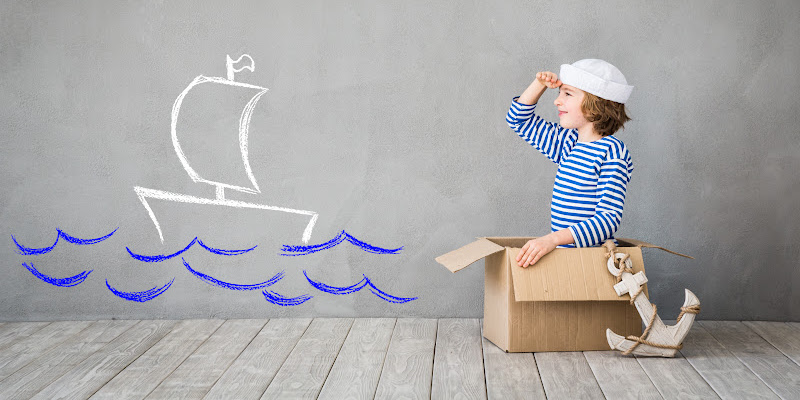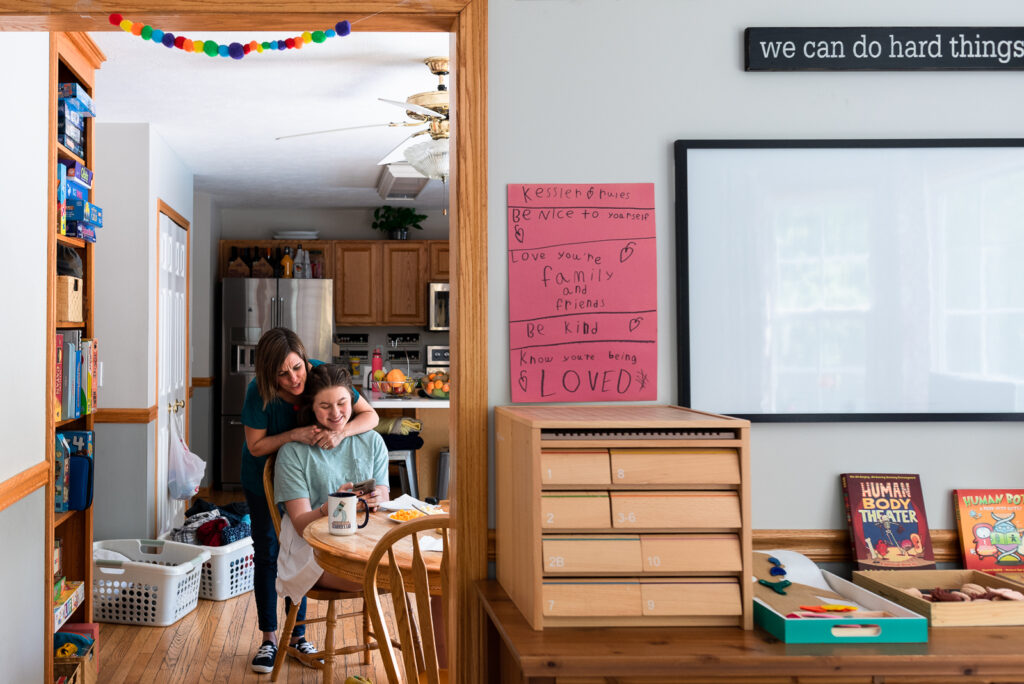Guide Your Kids on the Path to Self-Discovery
One of the absolute most important things we can do for our differently wired kids: gifted, twice-exceptional, anxious, sensory, ADHD, autistic, or any other neurodivergency, is to help them understand who they are through self-discovery.
We can help our kids see the beauty of how their brains are wired and teach them that this is why they are who they are, so that they can be the most beautiful and amazing versions of themselves.
Knowledge is Power
When it comes to a kiddo who is different from the kids around them, they know they’re different in some way, shape, or form. So when the question of labeling comes up, let’s remember that by not labeling your kids in some way or explaining how their brain works, they’ll label themselves.
They’re going to give themselves the label of…
I’m stupid.
I’m dumb.
I’m wrong.
Think back to when you were a kid, and you felt out of place. I’m sure your internal dialogue was less than complimentary. I know mine was. And I know from talking with my own kids that when they feel off or different, they’re feeding their own inner critic about what’s going on.
And it’s not very complimentary.
They’re thinking negative thoughts about themselves.
When we give them this gift of understanding that their brain is wired in a way that causes some struggles or makes some things easier for them, they can increase their level of self-acceptance and knowledge.
When our kids understand how their brains are going to be working in given situations, they are able to speak up, embrace their differences, and become their own champions.
We want to give them the gift of understanding because knowledge is power, but we also want to be open and honest with them.
When your kids ask questions about themselves, don’t evade; answer them.
They may ask why they act in a certain way or why they can’t do what others can. Explain how their brain is wired and that it’s not wrong. It’s not bad. It’s not good. It just is.
Problem-Solve as a Team
Another way to help your kiddo discover themselves is to problem-solve struggles together. Explain that certain situations are harder for them, then invite them to troubleshoot with you. Brainstorm a few ways to handle those struggles, some for when you are present and some for when they are out on their own.
This is a powerful tool for our kids.
By encouraging them to help come up with a plan for solving the problem before it even happens, you’re creating an ongoing conversation where you get to be your kiddos partner. You get to be the person they go to.
Another activity that you can do with kids is study the brain with them. In the Learner’s Lab, we did an activity a few months ago where we talked about the brain, and how their brains are wired related to habit building.
We talked about the neuroplasticity of the brain, and that brains do the same thing over and over again, creating habits. We develop these neuro-pathways where, simply stated, we have a road right inside of our brain that goes from point A to point B.
The neat part is that you can rewire those neuro-pathways by consciously making a different choice. You start at point A, but instead of going to point B, go to point C every time. The more you go to point C instead of point B, the stronger the pathway from point A to C is. Over time the pathway from A to B will diminish.
One example of this is when my daughter first started struggling with anxiety. We talked about this “little gray gland thing in the base of her skull” called the amygdala. That was the source of the fight, flight, or freeze response in her brain which caused a feeling of danger all the time. It became her job to calm that little amygdala down. She would have to determine if there really was danger, or did her amygdala just think there was.
Helping our kids understand the science behind their feelings is empowering. It enables them to discover who they are and use all that information to grow in new and interesting ways.
In this process of helping my kids with their self-discovery, I have learned so much about why I did certain things when I was a kid. I bet that you have had this same experience too. So, this whole self-discovery process is two-part.
Finally, let’s remember to use supportive language through this self-discovery process. When we start talking to our kids in this positive way, it becomes a habit. As a bonus, it teaches us to be kind to ourselves as we’re being kind to our kids.
Raising Lifelong Learners Episode #206: Guide Your Kids in the Path of Self-Discovery
Self-discovery is a powerful tool we can use and harness to help our kids feel good about themselves and be successful and to help all of us in the family thrive in our atypical, differently-wired homeschool. In this episode, Colleen shares ways we can guide our kids in ways that help them discover who they are and how their brains are wired.
Links and Resources from Today’s Show
- SPONSOR: CTC MATH
- The Learner’s Lab, a Raising Lifelong Learners community!
- RLL #191: Celebrating Your Child’s Neurodiversity
- The Gift of Giftedness
- RLL #114: Supporting The Social and Emotional Needs Of Gifted And Twice-Exceptional Kids
- Knowledge is Power: Helping Our Gifted Children Cope
- Masterclass | Cultivating a Healthy Mindset
Leave a Rating or Review
Doing so helps me get the word out about the podcast. iTunes bases their search results on positive ratings, so it really does help — and it’s easy!
-
- Click THIS link to go to the podcast main page.
- Click on View in iTunes under the podcast cover artwork.
- Once your iTunes has launched and you are on the podcast page, click on Ratings and Review under the podcast name. There you can leave either or both! Thanks so much.



